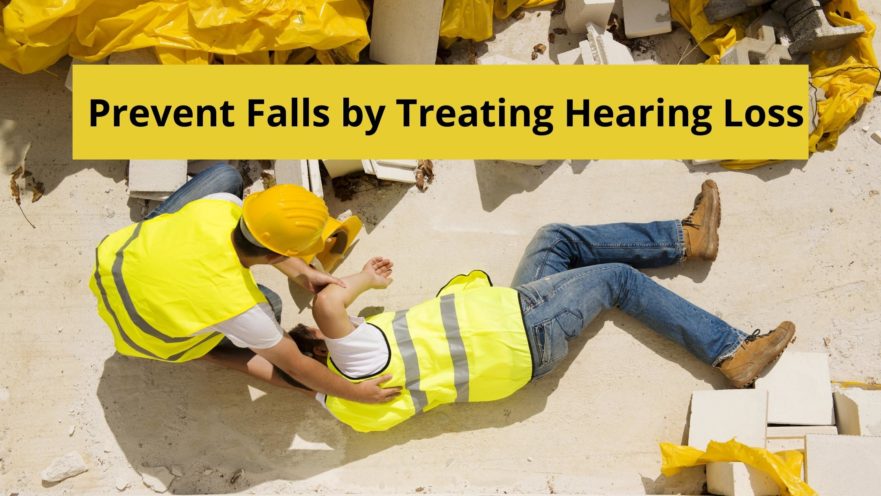- The Harm of Smoking to the Ears - April 9, 2025
- The Importance of Exercise for Hearing Health - March 11, 2025
- Movie Theaters and Hearing Aids - February 13, 2025
We all know that falls happen, but that’s no reason to think of them as predetermined as we get older. Even as the risk of a falling injury increases as we age, utilizing consideration and precaution can keep you out of harm’s way.
One thing to consider, which may surprise you, is that untreated hearing loss increases your risk of falling significantly. For people with mild hearing loss, the likelihood of a fall is twice as great as for a person with unaffected hearing. When a person has severe untreated hearing loss, that statistic jumps from 200% to 500% greater risk.
Facts about falling
We can all remember a time when we were children when playground accidents and tumbles seemed to happen every day, and our bodies just bounced back. Sadly, it becomes sorely apparent that the older we get, the harder we fall. Our bodies take longer to recuperate from shock and injury as we age, so falling can cause lasting damage that exacerbates existing conditions and limits mobility.
Statistics show that every 11 seconds, an adult is admitted to an emergency room with a falling injury. For people over 65, 25% will experience an accidental fall over a year. Accidental falling is a top cause of both fatal and non-fatal injury in older adults, so it’s essential to take preventative steps to avoid falling, like making sure our homes are free of obstacles, staying physically active, and making sure to get regular hearing exams.
The connection between your hearing and falling
Why would our hearing be so dramatically tied to falling accidents and injuries? After all, it’s not as if we trip on the stairs because we can’t hear them. The truth lies in the intricate way hearing loss compromises our brain.
During the process of healthy hearing, our inner ear and auditory nerve deliver the impulses of sound over well-established pathways to the auditory cortex of our brain. We use our mind’s cognitive functioning skills to interpret and comprehend those sounds. With hearing loss, the information the inner ear gathers is limited, and the auditory nerve works overtime to correlate the sound we perceive into meaningful messages to the brain.
Similarly, this struggle continues in our auditory cortex, where the mind has to piece together auditory clues to understand the whole picture.
Hearing loss burdening the brain could be likened to reading a book with one-third of the words cut out. You can certainly read this way and gather the gist of the book, but it will take a lot longer to parse the words, and there’s a high likelihood you’ll be missing critical information or misunderstand the text.
The strain on your brain that hearing loss creates takes away from other cognitive tasks the brain performs. While working to understand your ears’ picking up, less attention is available for your balance and coordination. When you can’t pay enough attention to your surroundings, you have a greater chance of falling and injuring yourself. The more energy you have to devote to understanding sounds, the fewer resources you have for staying sure-footed.
Hearing loss is not curable, but it is treatable
First, some bad news: hearing damage to the inner ear is mainly irreversible, and this is the most common type of hearing loss that occurs gradually as we age. Permanent damage to our hearing accumulates through our lives, and the fragile parts of the inner ear become more delicate as we get older, making us more susceptible to hearing loss. Caring for your hearing is a full-time life-long job.
However, even though damage to your hearing may be permanent, it can be treated. Through hearing aids, treatment for hearing impairment helps most people recover a large part of their missing sound spectrum. Hearing and listening become easier with hearing aids, taking that burden off of the cognitive brain…and freeing it up to help you avoid accidents! Hearing aids go a long way in restoring connection and confidence in people’s lives with hearing loss.
Treating Hearing Loss
It’s important to schedule regular hearing exams because the earlier you catch hearing loss, the easier it is to rehabilitate your hearing and adapt to assistive devices. If it’s time for a hearing checkup, contact us! Our team of hearing specialists is ready to provide you with the best hearing healthcare in California.

